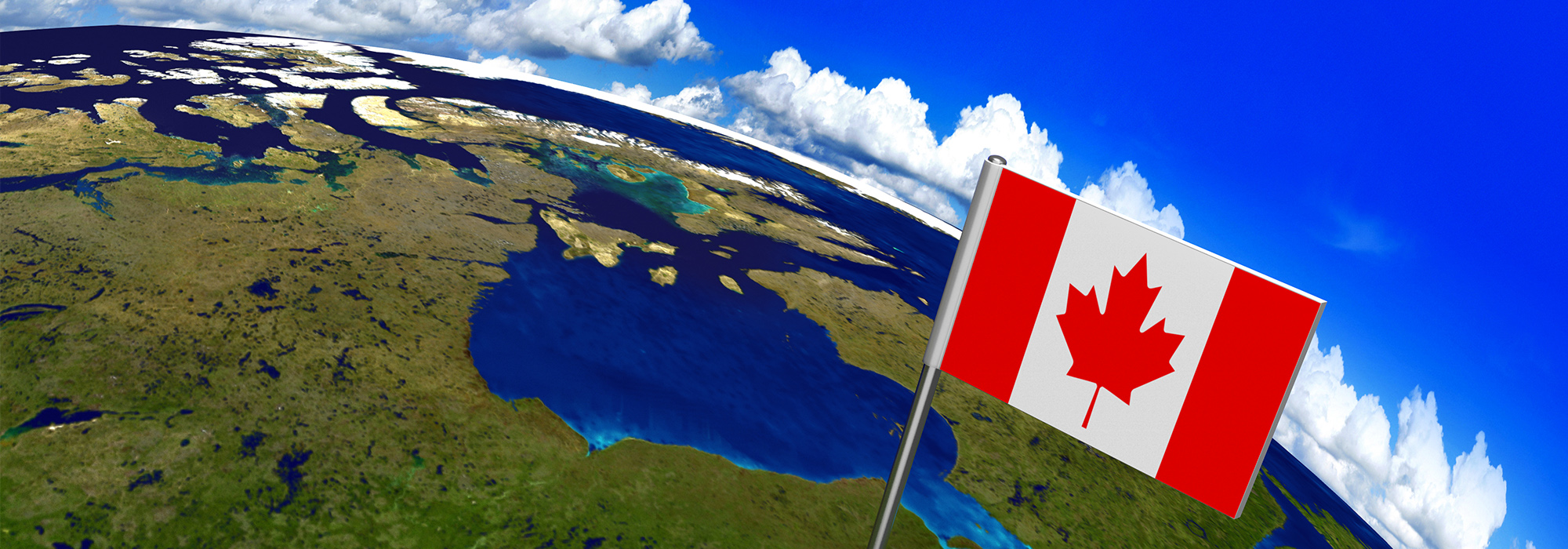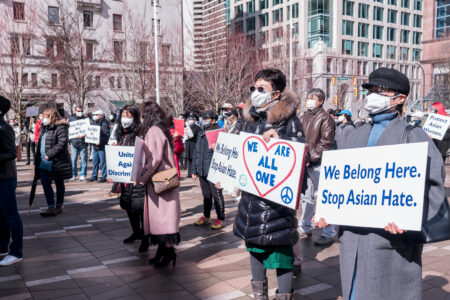
Xenophobic retrenchment has been evident in many societies lately. Anti-immigrant parties have made or consolidated gains in countries such as Hungary, Germany, the Netherlands and, most recently, Italy. Resentment of immigration helped to motivate at least some British voters who supported Brexit. And of course, President Donald Trump’s rhetoric about immigrants to his country has been hostile — whether they come from Mexico, Muslim-majority countries or African countries.
Many commentators have speculated that Canada may take a similar turn. Certainly, Canada is not immune to bigotry. In addition to forms of discrimination that reveal themselves in economic data and survey findings, this country experienced a singularly violent attack on Canadian Muslims last year: a hate-motivated mass shooting at a Quebec City mosque that killed six people.
Are Canadians souring on their country’s traditionally high levels of immigration? Are they becoming more likely to support political candidates who channel ethnic and nationalist resentments? Are immigrants themselves souring on life in Canada?
Remarkably, recent survey findings suggest the opposite. New research by the Environics Institute indicates two important and hopeful findings. First, Canadian attitudes toward immigrants remain open and positive. This pattern, which has been in evidence since the early 1990s, has not reversed in recent years. Second, Canada stands out internationally in the happiness that immigrants themselves report, and in the general public’s positive attitudes toward their foreign-born compatriots. (One driver of these mutually positive feelings may be that around 4 in 10 Canadians are themselves immigrants or the children of immigrants — meaning that immigrants’ attitudes are public attitudes to a significant extent.)
In spite of high and growing levels of immigration into Canada (around 300,000 in 2017), 6 in 10 Canadians recently surveyed by Environics disagree that immigration levels are too high, compared with 35 percent who agree. Eighty percent believe the economic impact of immigration is positive, a conviction that goes a long way in explaining the success of the Canadian model.
Canadians stand out internationally in the way they think about immigration and diversity in their society.
Attitudes toward the legitimacy of refugee claims has grown more positive than they have been in the past three decades. More Canadians disagree (45 percent) than agree (38 percent) with the statement: “Most people claiming to be refugees and not real refugees” — and that disagreement has more than tripled since 1987.
Canadians do express concern about the speed with which they think immigrants adopt “Canadian values.” Today half of us (51 percent) do not think immigrants adopt Canadian values quickly enough, but rather than surging in recent years, the proportion of Canadians who hold this attitude has actually declined from 72 percent in 1993. Such concern is now at the lowest level in the 25 years over which this survey question has been put to Canadians.
Canadians stand out internationally in the way they think about immigration and diversity in their society.
Gallup’s Migrant Acceptance Index is a composite score for a society’s openness toward immigrants, made up of responses to three questions about whether it is a good thing or a bad thing that immigrants live in their country, become their neighbours, and marry a close relative. The survey covered 140 countries, and Canada ranked fourth overall in its acceptance of migrants. Among those in the OECD, Canada ranks third and the United States ranks tenth, while major European countries like Germany, the UK, Italy and France are farther down the list, followed by those in Eastern Europe.
What about immigrants themselves? Do they feel at ease in Canada? The just-released 2018 World Happiness Report finds Canadian immigrants’ assessment of their “subjective well-being” is among the most positive in the world: ranking seventh out of those of 156 countries. Immigrants’ happiness in Canada is fairly consistent regardless of where they’ve come from and where they’ve settled in Canada. Their self-reported well-being is also more similar to that of other Canadians than it is to people in their countries of origin.
The World Happiness Report’s authors note that newcomers tend to arrive in their new societies full of optimism, but in societies that prove unwelcoming, happiness declines over time, meaning that settled migrants end up less happy than new arrivals. Among more accepting countries, newcomers’ optimism is affirmed by experience, and happiness remains high among settled migrants. The data show this is clearly the case in Canada.
It’s not unreasonable to think that an accepting society and happy, optimistic immigrants create a virtuous cycle over time — with most people doing their best to be fair and friendly and to give others the benefit of the doubt. It’s worth noting that, as immigrants become more numerous — and, increasingly, spread beyond the traditional catchment areas of Toronto, Vancouver and Montreal — the proportions of Canadians who report direct experiences with immigrants and various groups different from their own is on the rise. Generally speaking, personal experience with difference breeds good feeling (and probably helps to inoculate people against fear-mongering in the media or online).
Still, large majorities of Canadians acknowledge the reality of racism and discrimination. For instance, 84 percent of Canadians believe Canadian Muslims face discrimination often (50 percent) or occasionally (34 percent). Large majorities also believe immigrants from the Middle East, Indigenous people and Black people face discrimination at least occasionally. These findings indicate that most of us recognize there’s still much work to be done to live up to some of our rhetoric about diversity and inclusion, but acknowledgement of society’s shortcomings is a better place to start from than denial.
For now, it’s worth bearing in mind that, even amid gloomy headlines from both here and abroad, millions of people are quietly getting along in Canadian communities every day. Moreover, things can and do change for the better; people have a record of changing their minds in our imperfect country. According to a 2016 Environics survey, little more than 20 years ago only 35 percent of Canadians felt that two people of the same sex who live together should be regarded as being the same as a married couple. In 2016, the proportion was 73 percent. (Some of this change is intergenerational: tolerant young people replacing older traditionalists. But many Canadians (including many older people) have changed their minds on same-sex marriage.
As some other societies retrench, Canadians — those born here and those born elsewhere — appear to be continuing their evolution toward greater mutual acceptance and greater acknowledgement of where their society falls short on equity. These recent findings suggest that Canada has a strong foundation from which to work toward a country where even more of us can report happiness, well-being and optimism for the future.
Illustration: Shutterstock, by David Carillet.
Do you have something to say about the article you just read? Be part of the Policy Options discussion, and send in your own submission. Here is a link on how to do it. | Souhaitez-vous réagir à cet article ? Joignez-vous aux débats d’Options politiques et soumettez-nous votre texte en suivant ces directives.











